As an authorpreneur, you may be familiar with how content creation and distribution adapts to changes in time. Audiobooks are simply a more convenient and accessible way for authors to convey their content to their readers. While for some people, they are a necessity, for some, they are merely a convenient way to “read” books.
The audiobook production industry is expected to rise at a rate of above 25% through 2027, according to industry forecasts. The accessibility aspect of audiobooks for physically challenged and non-English speaking populations is encouraging the industry’s growth. Audiobooks have become more popular in the decade, and it appears that the lockdown has only piqued people’s interest in them. It enabled them to have a customized audio experience at any time and in any location.
According to IBISWorld, the audiobook publishing market in the United States was valued to be at $1.3 billion in 2021. With all the buzz surrounding the subject, learning about the process of audiobook production, its distribution, and the type of content that is most likely to sell can develop your Ebook business further and provide your customer base with more options to expand your business.
Audiobooks in the genres of science fiction and fantasy garner the most attention. Mysteries and suspense novels follow closely behind. Audiobooks that are less than an hour-long have a strong market. 43% of audiobook buyers said they would buy a one-to-three-hour-long audiobook. If you already have an established customer base, you could also conduct polls to see which genre and the duration would your customers like to see from you.
Understanding what sells in the genre of audiobook content is quite similar to understanding what topics and genres sell for Ebooks. It is simply about understanding the popular niches in the market and the genres that go well with the listening factor. The most popular audiobook genres include mysteries, thrillers, and suspense. History, romance, and biographies are a close second.
You’re most likely converting a fiction or nonfiction book or Ebook to audiobook format, as well as an online course or a collection of blog entries. Perhaps you’re developing something exclusively for audio. In any case, your scripted text should be written in such a way that it can be fully understood in audio format. You can seek out an Ebook writing service to get the content developed for your audiobook. Here are a few things to keep in mind:.
● Remove all hyperlinks. You can either leave them out or include a reference to the supplied site.
● Captions and footnotes should be removed. Incorporate them into your spoken text.
● Remove all graphics. Replace them with descriptive text that gives the reader the same picture. If necessary, direct the viewer to a separate page where they may view those graphics.
● Remove any calls to action or click here prompts that aren’t necessary.
After you’ve finished writing your new script, read it aloud to yourself to make sure everything makes sense.
You may either narrate your audiobook yourself or hire someone to do it for you. If you choose the latter, you can find skilled narrators on sites like Findaway Voices or Voice123 with their hourly fees. It’s important that you review their prior work and provide them a sample or two to read as an audition before you hire them as your narrator. When hiring a narrator, see if their voice matches the tone of the script by reviewing their cadence, pronunciation, and accent. If you’re thinking of narrating on your own, keep these things in mind:
● With your phone or a free recording app, record a chapter.
● Listen objectively, visualizing the experience you want your audience to have.
● Determine if the narrative drew you in or distanced you from the story.
You can skip this step if you’re collaborating with a skilled narrator or a production company as they are likely to take care of this step for you. If you’re taping yourself at home, here are some pointers to keep in mind throughout the recording stage to ensure a seamless editing process:
● Turn off any fans, TVs, and other appliances in the room. Your microphone may pick up even the tiniest hum.
● To lessen the echo, use a room with carpeting.
● Stay still during recording and don’t move closer or farther away from the microphone as you talk as it can produce loudness fluctuation, making editing more difficult.
● Maintain the same amount of volume in your voice.
● Use the electronic device to read while recording. You don’t want to have to remove page-flipping noises in post-production.
● If you make a mistake, re-record it.
Once again, if you have chosen to get your book narrated by a narrator or an agency, you can skip this step. If you did it yourself, your editing process will depend on the quality of your recording sessions. Here are a few pointers to remember when editing:
● Remove any “ah” made by the mouth.
● Remove any “s” noises that are too loud.
● Ensure that the volumes are all within the same range.
● Make each chapter a separate file with clear section headings.
To make your audiobook a success, you’ll need more than just the recorded files. Before you can publish, you’ll need to arrange the following:
● A demo or a sample audio track: It’s a good idea to give customers a chance to listen to a sample track or two before they buy your audiobook.
● A description of the book: Prepare a few paragraphs to introduce your book. Your description should be succinct, catchy, and engaging since it will be what persuades the listeners to buy your audiobook.
● Artwork for the cover: You’ll need a cover image to represent the content of your audiobook once you put it for sale.
With your audiobook recorded and edited, it’s ready to be released. While you can upload your audiobook on your website for sale, however, if you wish to reach a wider customer base and earn more revenue, seeking a distribution platform is a way to go. Here are some popular audiobook distribution platforms that most authorpreneurs use:
● Findaway Voices: Findaway Voices is a company that specializes in audiobook development and distribution. This global distribution network spans more than 170 nations. They also allow writers complete pricing control.
● ListenUp: ListenUp provides audiobook production and non-exclusive distribution services to independent authors and publishers, compensating authors for 80% of the overall royalties received. With ListenUp, authors may determine their rates.




